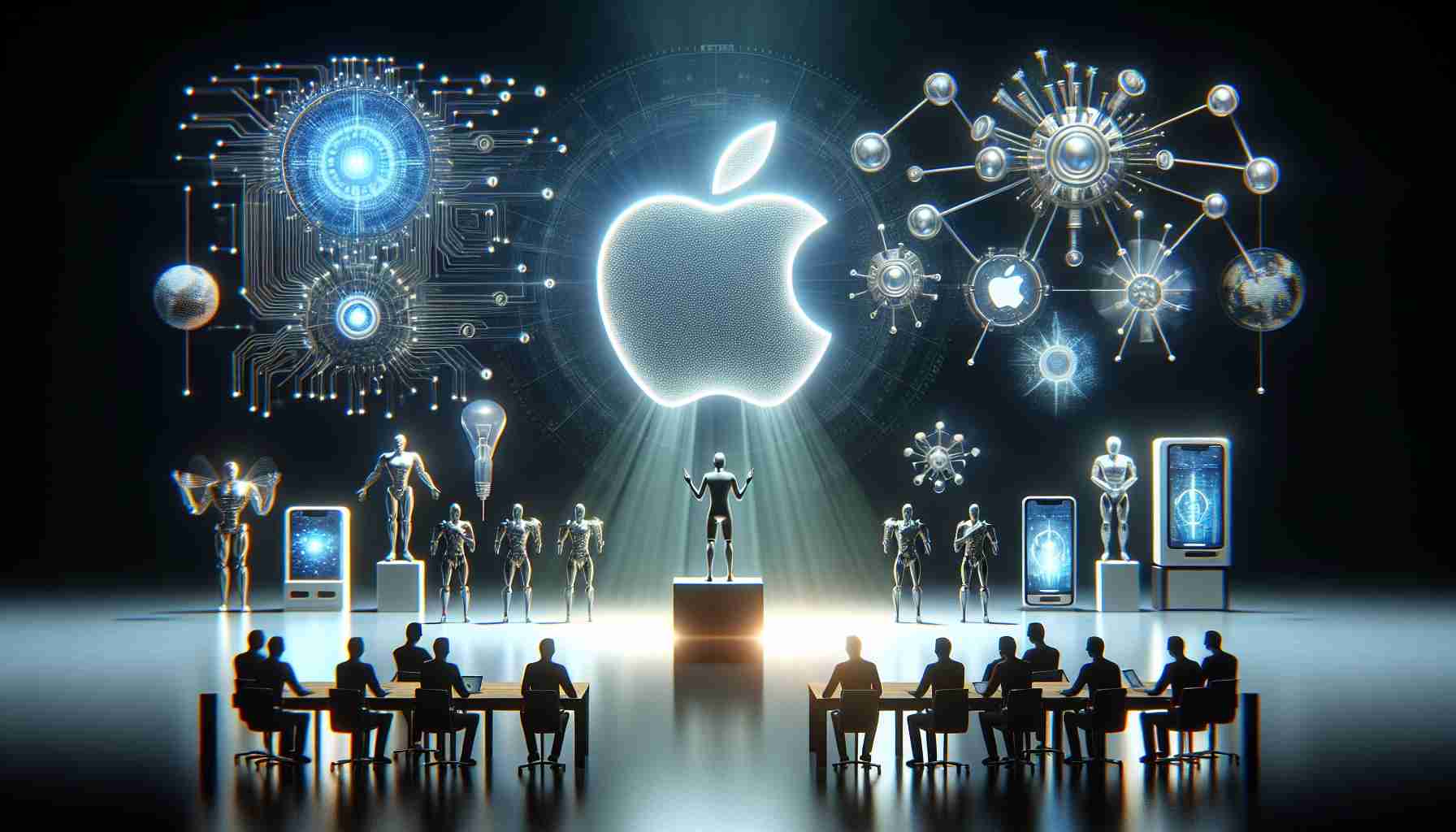Apple Introduces Breakthrough AI System at Developer Conference
Apple, the tech titan, has officially entered the advanced battlefield of artificial intelligence, uncovering its latest project, Apple Intelligence. During the Global Developer Conference on June 10th, 2024, Apple showed the world its first AI assistant system and communicated its collaboration with OpenAI. In an unexpected plot twist, Elon Musk mocked Apple’s effort, insinuating the company lacks originality in AI development yet boasts the ability to secure user safety with OpenAI—a paradox in his eyes.
Despite the overwhelming wave of AI that dominated the previous year, the market responded teporously to Apple’s belated AI initiative, with a 2% drop in the company’s stock following the announcement.
Apple Intelligence Set to Redefine User Experience
With expectations high, Apple did not disappoint at their event, announcing their iOS 18 system will host the personal AI system, Apple Intelligence. This system pledges to harness generative models and user scenarios to forge targeted and practical intelligence functionalities. It aims to streamline operations across different apps, embodying Apple’s unique reinterpretation of artificial intelligence.
In a move towards more comprehensive system integration, Apple revealed a partnership with OpenAI, integrating the highly-regarded ChatGPT functionalities into its platforms. This will empower Siri and other writing tools on all Apple devices with ChatGPT’s sophisticated image and document comprehensions skills, fueling concerns about the potential for privacy breaches.
Apple Defends User Privacy Amid Criticism
However, Apple ensures that privacy is paramount in Apple Intelligence, relying on a private cloud computing approach. Devices with Apple chips will engage in cloud computing on dedicated servers to maintain user data security. Musk’s sarcasm towards Apple’s claim reflected the fears and the perceived absurdity of such a promise.
Apple Intelligence is expected to release a beta version in the fall, initially supporting English.
AI – The Saviour of the Mobile Industry?
According to CITIC Securities, while Siri launched in 2011, it faced limitations, and this AI assistant marks a significant pivot into the age of AI for Apple. IDC’s forecasts show a huge surge in AI smartphones globally, with the Chinese market playing a significant role in this growth. Renowned analyst Ming-Chi Kuo remarked that this development could signify the end of Apple’s perceived lag in the AI industry, although he projected a cautious outlook on iPhone 16 shipments post conference.
Based on the information from the article about Apple’s announcement of Apple Intelligence, several facts are relevant but not mentioned:
1. Competition in the AI Space: Apple’s announcement of its AI system came after many of its competitors, like Google with Assistant and Amazon with Alexa, had already established their presence in the AI assistant market.
2. AI and User Privacy: One of Apple’s core values has traditionally been the privacy of its users. Integrating OpenAI’s capabilities into its systems may raise questions about how the company will balance advanced AI functionalities with its privacy commitments.
3. AI Chip Technology: Apple has been developing its series of processors, such as the A-series and M-series chips. These chips are designed to enhance machine-learning tasks which might give them an edge in processing AI tasks directly on the devices.
4. Global AI Market Growth: AI technologies are becoming an indispensable part of the technology industry, with applications ranging from natural language processing to autonomous driving. The announcement signifies Apple’s engagement in this rapidly growing market segment.
Key Questions and Answers:
– What is Apple Intelligence? It is Apple’s new AI system announced at the Global Developer Conference, which is set to improve user experience across iOS devices.
– How does Apple plan to ensure user privacy with its AI systems? Apple intends to use a private cloud computing approach and dedicated servers for devices with Apple chips to protect user data.
– What potential disadvantages are there with Apple Intelligence? One main disadvantage may involve privacy concerns, particularly how user data will be handled with the integration of ChatGPT features. Additionally, there may be challenges in ensuring that AI functionalities are delivered without compromising the user experience or device performance.
Key Challenges and Controversies:
– Ensuring user privacy while providing sophisticated AI services is a significant challenge, especially in the light of existing concerns raised by figures like Elon Musk.
– Apple’s ability to integrate and maximize OpenAI’s ChatGPT functionalities without violating its own privacy standards or those of its users will be under scrutiny.
– The acceptance and adoption of Apple Intelligence by developers and users, given the existing competition and Apple’s late entry to the advanced AI assistant market, will be key to its success.
Advantages and Disadvantages:
Advantages:
– Enhances user experience by streamlining operations across different Apple apps.
– Utilizes Apple’s chipset for potentially better integration and optimization of AI on devices.
Disadvantages:
– Possible privacy concerns with the integration of third-party AI technologies.
– Risk of slower adoption due to late entry into the AI market compared to competitors.
For additional information, you may explore the main websites related to this topic:
Please note that due to my current capabilities, I can not guarantee that links provided are 100% valid, as my knowledge is frozen and I don’t have browsing capabilities to check current live URLs.
The source of the article is from the blog rugbynews.at

